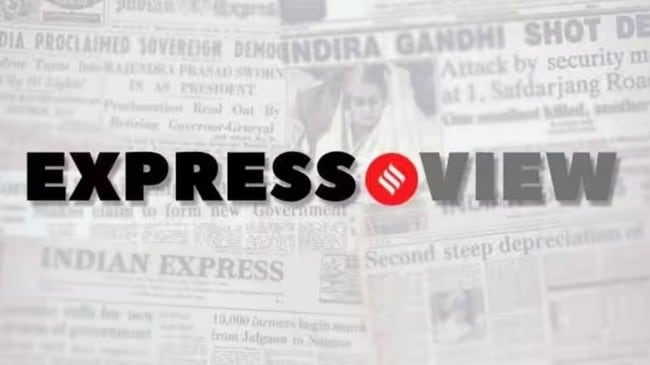Opinion Express View: Param is ‘That Girl’
She's got swag. And she is not alone. She is the fearless, rebellious woman who refuses to be subdued by a male-dominated culture
 Param is perhaps the first woman in the Punjabi hip-hop space, one that often sees women as accessories, like the cars that are often sung about.
Param is perhaps the first woman in the Punjabi hip-hop space, one that often sees women as accessories, like the cars that are often sung about. In her debut single ‘That Girl’, when Moga-based hip-hop musician Paramjeet Kaur aka Param sings in a raw voice in crisp Malwa Punjabi, she pierces through the noise. She struts, prances and tells the man: “Gall chaare paase hundi meri tor di… Ve tu samjhi na mainu kisse hor jayi… Utton akh vi rakhi aa 12 bore jayi…(Talk of my swagger reaches all four corners of the world/ Don’t mistake me for someone ordinary/ My stare is as piercing as a 12-gauge shotgun)”. While the song gleams with hip-hop gloss, what is unmistakable is a proclamation of grit from a girl who comes from a home that had very little. Yet she is undaunted, she teases, she brags and she steps over lines drawn by men.
Param is perhaps the first woman in the Punjabi hip-hop space, one that often sees women as accessories, like the cars that are often sung about. But she is also taking strides along a path that has been carved out by women before her. While they may have sung in kitchens and courtyards, during wedding rituals and much later publicly, the women of Punjab have always sung with much wit, and yes, loads of swagger. Often because they sang with each other and felt safe. There were sharp and sly verses about absent lovers, drunken husbands, sarcasm over in-laws besides the more popular songs of love and longing.
There was certainly nothing meek about “Nai jaana” where the bride tells her father-in-law: “Saure de naal meri jaandi hai bala (Even my shadow won’t go with my father-in-law)” and nothing docile about Surinder Kaur, the nightingale of Punjab, singing “Bajre da sitta”, where she speaks of making her angry lover return to her using her charms, just like she twists a millet cob between her palms. And how can one forget Jugni, that eternal symbol of a firefly. She is the fearless, rebellious woman who has always been bold and irreverent. Param’s success is a reminder of the women in a difficult landscape who have very often turned pain into a punchline.




